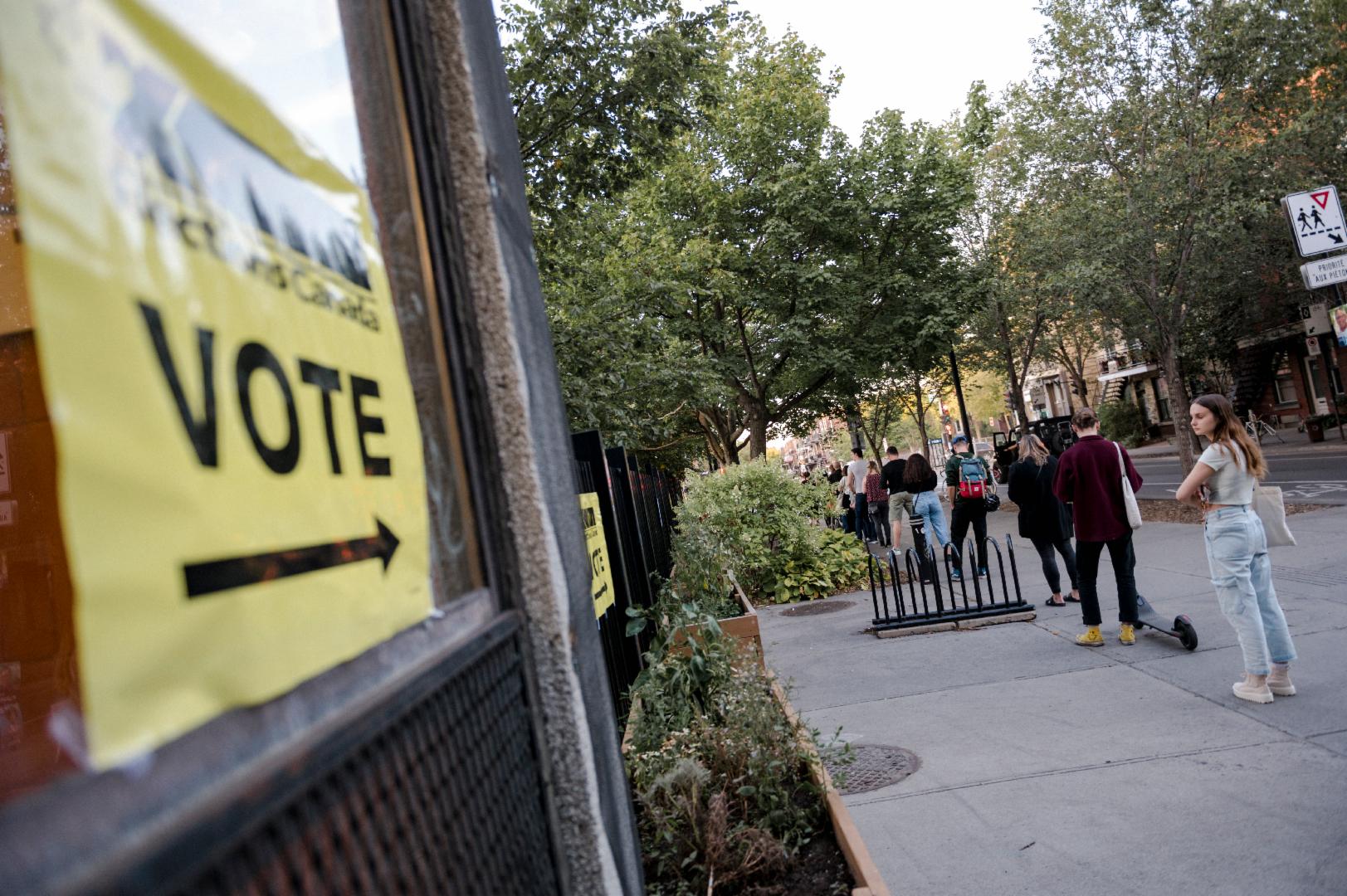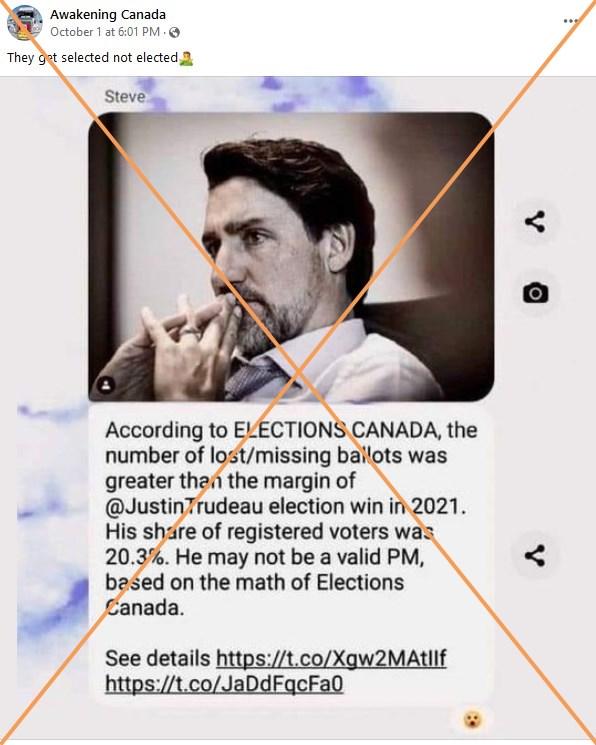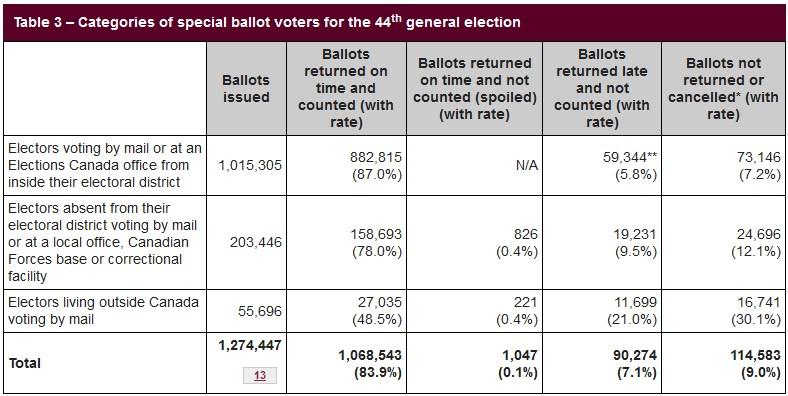
Posts mislead on 2021 Canadian elections, 'missing ballots'
- This article is more than three years old.
- Published on October 12, 2022 at 21:57
- 3 min read
- By AFP Canada
"According to ELECTIONS CANADA, the number of lost/missing ballots was greater than the margin of @JustinTrudeau election win in 2021," says text in an image shared October 1, 2022 on Facebook. "His share of registered voters was 20.3%. He may not be a valid PM, based on the math of Elections Canada."

The same message has been shared thousands of times on Twitter since February 2022, when hundreds of protesters against Covid-19 restrictions occupied the capital city of Ottawa.
Trudeau's Liberals won the September 2021 snap election but failed to regain the parliamentary majority he lost in 2019.
The figures alluded to in the posts are genuine. But they do not indicate malfeasance affected the outcome of the election, according to Elections Canada and independent experts.
Data reflect 'uncountable' ballots
The posts cite Elections Canada's January 31, 2022 election report, which includes details on "special ballots" cast by "any elector who cannot or does not want to vote at an advance or election day poll."
Roughly 84 percent of ballots issued in 2021 were returned on time and counted. Nearly 115,000 were not returned or cancelled, while more than 90,000 were returned after the deadline, according to Elections Canada.

Matthew McKenna, a spokesman for Elections Canada, said certain conditions have to be met for mail-in ballots to be considered valid and therefore counted. For example, they must be received before polls close on Election Day -- and ballots sent from outside a voter's riding must arrive at the agency's distribution centre by 6 pm EST.
"Ballots that come in after these deadlines are set aside and cannot be counted," McKenna said.
If a signature is missing on the outer envelope, or if the name is different than that of the person who applied for the ballot, it also cannot be counted.
"The Canada Elections Act is clear that ballots that arrive late or do not pass integrity checks must be set aside and not counted. And we certainly cannot count ballots that were never returned to us in the first place," McKenna said.
He added that both numbers "are spread across 338 electoral districts, and that in federal elections in Canada, margins of victory are at the electoral district level." Rather than uncounted, McKenna said it would be more accurate to describe these ballots as "uncountable."
Elections Canada also refuted claims of "uncounted ballots" in a March 2022 Twitter thread.
We’ve been seeing a lot of comments suggesting we didn’t count some special ballots sent by mail during #Elxn44. Let’s be clear: we counted ALL ballots that arrived on time and that were not spoiled. Read the thread below for the facts about the rest. 1/
— Elections Canada (@ElectionsCan_E) March 11, 2022
"ALL ballots are counted by hand in front of witnesses," says one of the tweets. "By law, candidates can send representatives to witness the count at any polling location or Elections Canada office in their riding."
Experts rubbish claims
Independent experts agree the data from Elections Canada does not suggest the election was illegitimate.
Daniel Béland, professor of political science at McGill University, said in an email that the claims in the posts are misleading.
"There is nothing in this document to suggest that Justin Trudeau 'may not be a valid PM,'" he said of the Elections Canada report. "Most of these special ballots have not been returned, which is not the same as 'lost' or 'missing.'"
Canadians do not vote directly for the prime minister but for candidates in their riding, he added.
Laura Stephenson, professor of political science at the University of Western Ontario, agreed.
"Elections Canada has put out all of the statistics regarding the 2021 election and in no way do I see the numbers indicating that Trudeau is not a valid PM," she said.
Stephenson said the posts' focus on all registered voters is "completely misleading because that's not the number of people who actually cast ballots," adding that it is "well-documented that the Conservative Party got more votes than the Liberals."
AFP previously fact-checked inaccurate claims about Canadian elections here.
Copyright © AFP 2017-2026. Any commercial use of this content requires a subscription. Click here to find out more.
Is there content that you would like AFP to fact-check? Get in touch.
Contact us




